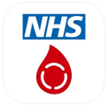Monthly archives: October 2022
Midland Met: Did you know?

Midland Metropolitan University Hospital is currently under construction. Once open, it will be part of our established Trust and our centre for acute care.
We have ambitious plans! Every detail of our new flagship hospital will help us to ensure we offer the best healthcare to the many people that rely on our services.
The new hospital has several interesting features, some of which you might not know about. To test your knowledge, you can check out our did you know facts right here.
It’s under construction in Smethwick

Black History Month: You called……and we came

In October 2017 Professor Laura Serrant wrote a poem and performed it for the first time at the Chief Nursing Officer for England’s annual BME conference. It was written to reflect, recognise and celebrate the contributions made by black nurses to the health system of England. But more than that, it shone a light on the hardships, prejudice and challenges faced by the brave men and women who responded to the call to leave their island nations that formed part of the British Commonwealth after World War 2.
You called…and we came.
In ships bigger than anything we had seen,
dwarfing our islands and covering them
in the shadows of smoke and noise.
Crowded, excited voices filled the air,
traveling to the ‘motherland’
– over weeks, over oceans that threatened to engulf us.
Driven by a wish, a call to save, to rebuild
and support efforts to establish ‘health for all’
in the aftermath of war.
You called….and we came.
Women and men of position in our homelands;
nurses with a pride in the excellence of our care.
With experience of management, organisation
and a sense of duty.
We appeared.
Smiling and eager to work on the wards, communities and clinics
of this England.
You called….and we came.
Our big hearts, skilful hands and quick minds
encased in our skins – of a darker hue.
Which had shimmered and glowed
in our sunnier climes..
But now signified our difference
– our un-belonging.
Matrons became assistants
Nurses became like chambermaids.
All the while striving to fulfil our promise
– to succour, to serve, to care.
You called….and we came.
The blue of the sister’s uniform
– seemed as far away from us as the moon.
Unreachable by our dark hands in this cold land.
But we were made of sterner stuff.
The hot sun, which once beat down on our ancestors,
when they too left their lands,
Shone within us.
Forging our hearts and minds
with the resistance of Ebony.
You called….and we came.
Rising like the Phoenix ,
from the heat of rejection.
We cared, we worked and we organised.
Until the quickness of our brains
and the excellence of our care
made it hard for you to contain us.
And slowly, so slowly,
the blue uniforms had dark and lighter bodies beneath them.
The professional care in our touch
was valued despite the strangeness of our speech
and the kinks in our hair.
You called….and we came.
A new millennium – new hopes spread across this land.
New populations, engaging and reflecting
the varied, diverse and vibrant nature of these shores.
Challenging and reflecting on leadership for health.
Moves to melt the ‘snow’ at the peaks of our profession.
Recognising the richness of our kaleidoscope nation.
Where compassion, courage and diversity are reflected
In our presence and our contribution:
Not only the hopes and dreams of our ancestors.
– Human values needed to truly lead change…and add value.
Remember… you called.
Remember… you called
YOU. Called.
Remember, it was us, who came.
Professor Laura Serrant 2017
We need to hear from all voices in the NHS Staff Survey

Now more than ever it is important that we hear from as many colleagues as possible as we move to recovery from the pandemic.
In order for SWB to implement the changes required to make our organisation the best lived experience for all our colleagues it is important that we hear all voices.
- What is the SWB experience like for you?
- What can be done to make our workplace a good place for everyone?
Please do take time to reflect and give your feedback.
Here is a short video by Frieza Mahmood, Chief People Officer talking about the importance of the survey.
Many of you will have received an invitation via email to your NHS account from insightandfeedback@iqvia.com. Colleagues in catering, transport, portering and domestic/ward services will have received paper copies with a freepost envelope to send the feedback straight to Quality Health.
If you have any queries or have not received your survey please contact Quality Health 0800 783 1775 or helpline@quality-health.co.uk
The survey will close on 25 November.
Hello my name is… Mark Anderson
This month, we introduce Dr Mark Anderson who is stepping into the chief medical officer role, following Dr David Carruthers stepping down in August.
Mark joined the Trust in 2006, coming on board as a consultant gastroenterologist. He became endoscopy lead in 2011, and in 2013 stepped up as clinical director of scheduled care. This role came with significant responsibility, involving oversight of around seven medical specialties; Mark continued in this role for four years. In 2019, he became the deputy medical director and the responsible officer for doctor’s appraisal, revalidation and medical professional standards. He continued in these roles until September 2022, when he became the chief medical officer.
We caught up with Mark to find out his aims within the role and find out how he’s adapting to the change from clinical to leadership responsibilities.
Mark stated his first priority is to support the fundamentals of care programme, “which is a significant part of our approach to quality.” Launched in September, fundamentals of care aims to ensure all patients receive certain fundamentals, such as appropriate nutrition, hydration, rest and dignity but also harm free care and clear patient centred communication: these fundamentals are the responsibility of the whole multi-disciplinary healthcare team.
Discussing healthcare values, Mark stated: “I’m interested in human factors and learning, and I believe in a no-blame culture. Similarly, in my role I am keen to support maternity as safety champion. I also think it’s crucial to emphasise and advocate for the principles of ‘freedom to speak up’.” These principles are relevant to his focus on safety and governance.
In the longer term, Mark referenced the ongoing construction of Midland Metropolitan University Hospital. He noted “I haven’t visited for four years, so I imagine it will be quite different now! I’m keen to visit again to see how the construction has come on.
“The hospital will have a massive impact on both staff and patients. The impact won’t just apply to the acute setting, but will also benefit our ambitions in integrated care: I think the new setting will provide us with opportunities to better link up acute care with primary and community care.”
We also asked Mark about his own goals, and how he’s adapted to his new responsibilities. Mark stated it’s been “a big culture change from carrying out primarily clinical work to primarily leadership. I’m excited about this, but aware there will be a lot to learn. I’m in a new environment and it’s a new way of working. I can still achieve the things I want to work on, but in a new way.
“I’ve immersed myself in the role to meet the new requirements and climb that steep learning curve. But it is a great team to be joining and to build on our successes in research and in medical education. I must pay tribute to my predecessor, David Carruthers.”
Mark is keen to retain his links with the clinical setting; “I want to maintain my clinical grounding and utilise the skills I’ve developed from my background in this new role. It’s really important to me that I don’t lose connection with the clinical environment and continue to be aware of what’s happening on the ground.
“I’m going to keep doing some endoscopy, whilst also getting out to clinical areas. Throughout my career, I’ve made it my priority to be approachable. It’s important to me that people are aware of this: if you want to talk, you can reach out and I’d be really glad to speak with you.”
Palliative care ward champion training
For all palliative care ward champions who haven’t made the training so far (both qualified and non-qualified colleagues) we will be running training sessions in the surgical skills room in the Postgraduate Centre at City on the following dates:
- Monday 31 October
- Tuesday 8 November
Note: You must confirm with your manager that they are happy for you to undertake this training.
For more information please email cmorris11@nhs.net or call ext. 3611.
New Birmingham Safeguarding Children Partnership neglect strategy

Birmingham Safeguarding Children Partnership has launched a new Neglect Strategy and multi-agency Practitioner Toolkit.
The Strategy sets out the responsibility of all agencies to work together to tackle childhood neglect across the city. The Toolkit supports practitioners to work with children, young people, and their families where there are concerns about neglect. This includes practical guidance and tools as well as links to other resources. Practitioners are encouraged to access the strategy and toolkit via the BSCP website.
Freedom To Speak Up Survey: We want to hear from you
Freedom to Speak Up (FTSU) provides a national framework that NHS trusts use to empower colleagues to raise concerns. It aims to develop open and supportive cultures that encourage colleagues to share patient care, quality, or safety issues.
Our organisation is diverse and as such, we want colleagues to feel safe to raise concerns regardless of their background or role. We have Speak Up Guardians in place and several ways people can raise concerns, including via our staff networks, the chaplaincy, union representatives, our executive team.
So we can improve everything Freedom To Speak up, we want to here from you and would appreciate it if you could take a just a couple of minutes to complete our Freedom To Speak Up Survey by clicking here.
Note: All surveys are completely anonymous however should you wish to discuss something specifically, please email emma.barton1@nhs.net.
Amber Alert: Blood Component app available to support clinical decision making
 Colleagues are advised that an national amber alert has been issued this week regarding a shortage of blood products.
Colleagues are advised that an national amber alert has been issued this week regarding a shortage of blood products.
To support in clinical decision-making in the appropriate use of blood products, all Trust mobiles have had the NHS Blood Components App enabled.
Any colleagues with devices that have failed to automatically download can find the app in their device app store listed as ‘Blood Components’.
Chief Executive’s Message – Friday 14 October
It has been some time since I covered the Trust finances in my weekly message. This week it feels important to do so. This year is the first time for many years that our Trust is forecasting a deficit position at the end of the financial year. When we planned our budgets for the year, we knew that safely managing patient care whilst continuing to live with COVID-19 and reduce our planned care backlogs would be a real challenge and we would be very likely to need additional support from the two integrated care systems that we straddle. As we have tracked our spend over the first six months of the year, our planned budgets are being significantly exceeded and we need to get back on track.
This situation is not unique to our Trust. It is well publicised that public sector finances are under significant strain and the budget plans coming out of the government are clear that public services cannot expect additional funding. We should expect that any investments will need to be met by individual organisations or local systems without additional central funding. Investment is made even more difficult if we are not meeting our budgets as planned. It is also possible that Trusts and systems will be asked to fund pay awards in the future, something that we have not been asked to do before. This puts us and our partner organisations in an increasingly challenging position as we look ahead to the expected increase in the number of patients who need planned and urgent / emergency care, and at the changes we need to put in place to deliver services in a different way as we prepare for MMUH.
We have put in place a detailed financial recovery plan, in collaboration with the group leads, so that we can recover our cost position and meet our planned budgets once more. Thank you to everyone who has worked hard to put this together. Our plans were shared and approved at our public Trust Board earlier this month.
We know we have experienced a really tough time over the last two and a half years. During the first few waves of the pandemic, money was no object and we were fortunate that the funds we needed to sort out expanded clinical areas, changes to our estate, infection control measures including PPE were largely met in full. Those days are now very much over and stringent financial accountability must be delivered. All of us are accountable for how we spend taxpayers’ money and it is everyone’s responsibility, with a particular onus on every manager, to ensure you know and understand your budget and you carefully plan to deliver within it. Where there are patient safety issues that cause you concern then you must escalate these within your service and directorates so that we can look at disinvesting in other areas to ensure that safety is maintained. For noting, that will be the only way we can make changes – by either investing to save (schemes whereby putting in some funding and working in a different way can save resources) or by stopping spending in one area to fund another.
This is indeed a bleak picture. Of course, more funding would be welcome and many would argue absolutely necessary. However, we must not and cannot expect that new funding will be delivered. Instead, we all need to look carefully at what we spend, think about how we can be more resource efficient, identify areas of waste and get on and make those changes that will put more money back into our NHS and ultimately to give our patients better care.
Thank you for your continued support. Please share any suggestions with your teams and let’s pull together to ensure that we retain our dedication to spending public money wisely (we are all taxpayers after all) alongside our priority to provide safe patient care.
Today is AHPs Day
Today (Friday 14 October) is Allied Health Professions (AHPs) Day! It’s the annual opportunity for AHPs and support workers to come together and celebrate being part of the AHP family.
AHP Day also serves as a platform to showcase some of the amazing work that happens by Allied Health Professions within the Trust and further afield.
Allied Health Professions are a group of healthcare professionals from 14 different professions, making up the third largest healthcare workforce.
Here at the Trust we employ 10 of the 14 professions which include diagnostic radiographers, speech and language therapists, operating department practitioners, dietitians, physiotherapists, orthotists, orthoptists, paramedics, podiatrists and occupational therapists. We do not currently employ osteopaths, music therapists, drama therapists or art therapists.
Today we share videos from James Severs Chief Allied Health Professional & Healthcare Scientist and Niamh Shankey, Physiotherapist and Desmond Conlon, ODP.

In case you missed any of our AHP videos throughout the week you can check them out by clicking here.
← Older items Newer items →
